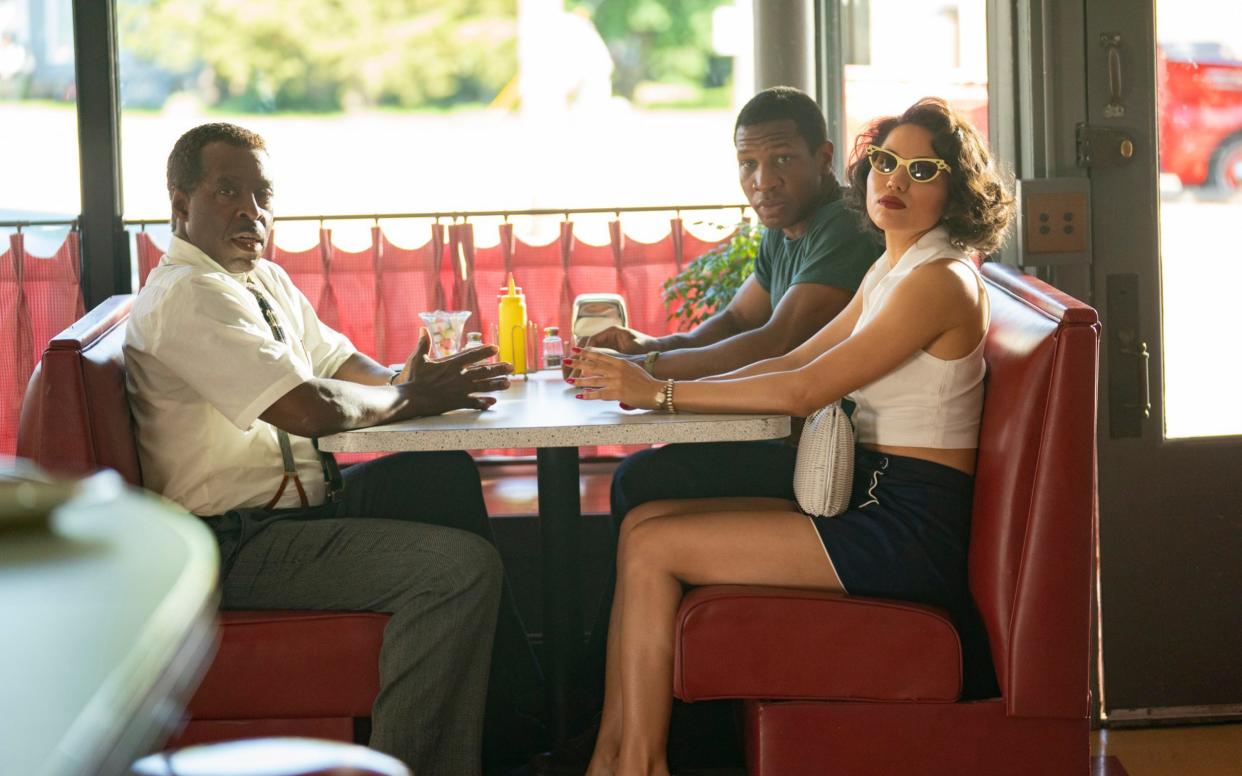Lovecraft Country, episode 1, review: horrors real and fantastic in this pulpy genre homage

You don’t have to be au fait with HP Lovecraft to appreciate Lovecraft Country (Sky Atlantic), but it helps. He was the influential author of cosmic horror fiction, creator of the tentacled monster, Cthulhu, and an avowed white supremacist referring to black people as subhuman beasts.
Lovecraft Country took great pleasure in subverting this. “Stories are like people,” said the hero, Atticus Black – how’s that name for symbolism? – near the beginning. “They’re not all made perfect. You just try to cherish them, overlook their flaws.” But this drama doesn’t overlook Lovecraft’s flaws. It shakes them down. The drama was a pulpy homage to the genre but with a black cast, set in segregated 1950s USA, where the threat of being lynched was far more terrifying than anything from the world of fantasy.
Black (Jonathan Majors) was a serviceman recently returned from the Korean War. His father disappeared after sending a mysterious letter about discovering a secret legacy. He set off across country to find him, in the company of his uncle, George (Courtney B Vance), publisher of The Safe Negro Travel Guide, and childhood friend Letitia (Jurnee Smollett-Bell).

This was the Jim Crow era. At the gas station, white people made monkey gestures at them. When they walked into a diner and attempted to order lunch, they were forced to flee. The most heart-stopping scenes involved them being run out of the “sundown town” by a racist sheriff. After that, a gory showdown with a slobbering alien was something the trio could take in their stride.
Created by Misha Green, produced by JJ Abrams (Star Trek, Star Wars) and Jordan Peele (Get Out), and adapted from Matt Ruff’s 2016, novel, it was ambitious, with high production values and packed with period detail. But the melding of horror and history wasn’t particularly satisfying. The leads were stock horror movie characters – resourceful hero, intrepid scream queen – which meant we had no emotional investment in them (Vance was the more interesting figure).
It rewarded a certain level of knowledge – James Baldwin’s 1965 American Dream speech at Cambridge University appeared unannounced on the soundtrack – but reduced all the villains to cartoon baddies. Tonally, it was closer to Quentin Tarantino’s From Dusk Till Dawn than the superlative Get Out. But it’s a fun ride, and with enough horror references to keep fans of the genre entertained.